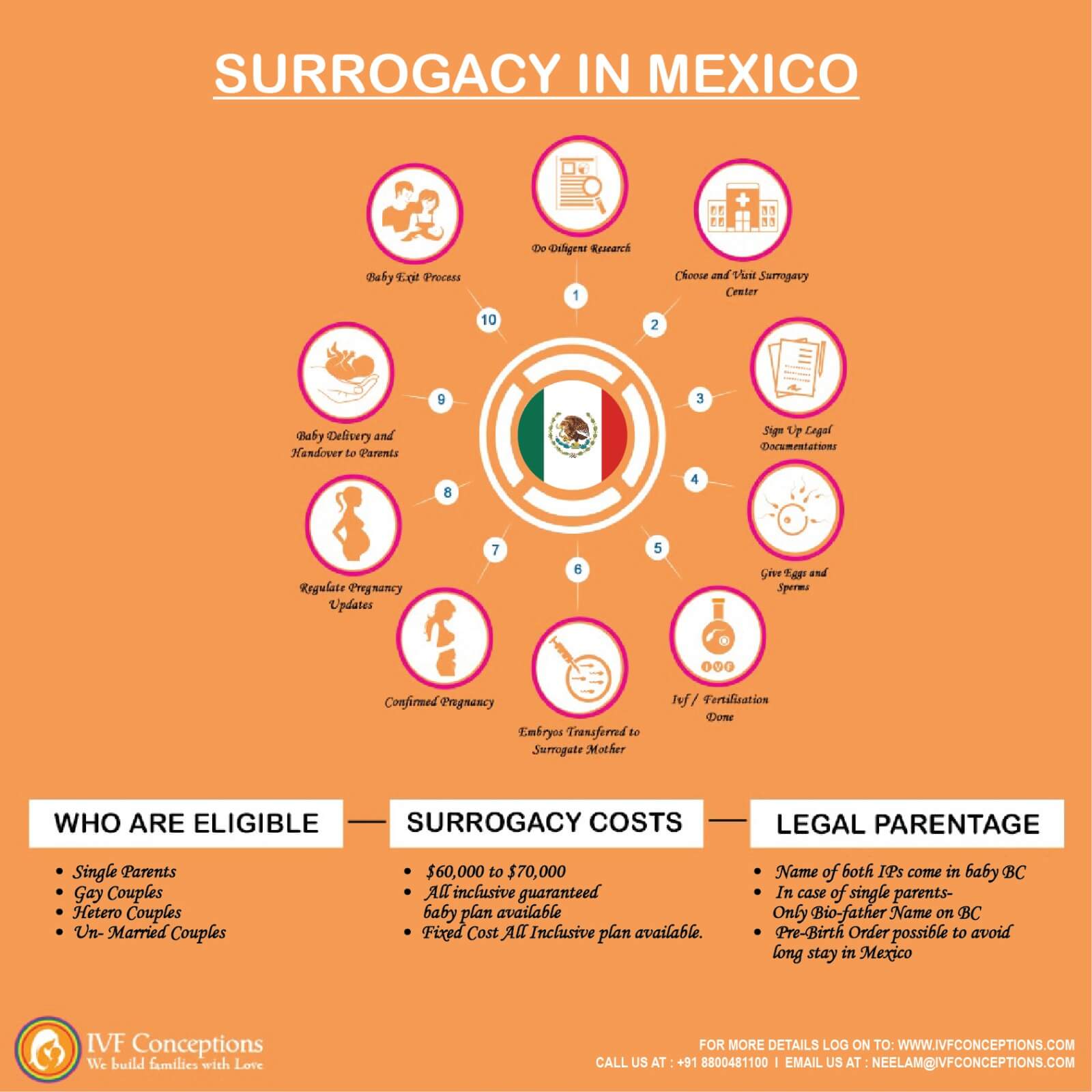The Legality of Surrogacy in Mexico- Your Complete Guide

Yes, surrogacy is legal in Mexico. In late 2021, the landscape of surrogacy in Mexico underwent a dramatic transformation. The Supreme Court’s decision declared surrogacy a protected medical procedure for all family types. This comprehensive guide discusses the nuances, legalities, and practicalities surrounding surrogacy in Mexico, equipping you with the knowledge to make informed decisions on your surrogacy journey.
Key Takeaways
- Surrogacy is legal in some parts of Mexico, but the regulations can vary significantly between states.
- Mexico offers a more affordable option for surrogacy compared to some other countries.
- It’s crucial to consult with legal experts and ensure you understand the local regulations before pursuing surrogacy in Mexico.
-
Get in touch for a Free Surrogacy Consultancy:
📲 +91-8800481100 ( WhatsApp, Line, Viber)
Navigating Surrogacy Regulations in Mexico
Understanding the legal nuances of surrogacy in Mexico is crucial for anyone considering this option. Here are some key points to keep in mind:
| Consideration | Details |
| Legal Representation | Consult with experienced legal experts familiar with state-specific surrogacy regulations. |
| Gestational vs. Traditional | Some states may allow both gestational and traditional surrogacy, while others permit only gestational surrogacy. |
| Parental Rights | Ensure the legal process establishes the intended parents as the child’s legal guardians. |
| Citizenship and Passport Issuance | Confirm the process for obtaining citizenship and passports for the child born via surrogacy. |
Current, Mexican surrogacy laws, including surrogacy legality in Mexico and legal requirements for surrogacy in Mexico, have undergone significant changes, with the Supreme Court’s landmark decision in 2021.
This decision has opened doors for a diverse range of intended parents, including single males and same-sex couples, to embark on the surrogacy journey.
Surrogacy agencies in Mexico play a pivotal role in facilitating the process, guiding would-be parents through the surrogacy eligibility criteria and the legal surrogacy process in Mexico. With more than 13 years of experience in international surrogacy, including surrogacy in Mexico, we are here to guide, support, and manage your surrogacy journey with one of our trusted partners.
While the cost of surrogacy in Mexico is not a concern when compared to the cost of surrogacy in the USA. There are many low-cost surrogacy and affordable surrogacy in Mexico, making it accessible to foreigners seeking Mexico surrogacy.
Related Guides for Surrogacy in Mexico:
How much does surrogacy cost in Mexico
All you need to know about surrogacy in Mexico
 Surrogacy Legality in Mexico: An Overview
Surrogacy Legality in Mexico: An Overview
The Supreme Court’s groundbreaking decision in June 2021, gave a ray of hope to many infertile couples and same-sex couples to grow their families via surrogacy in Mexico.
This landmark ruling declared compensated surrogacy legal for all individuals, irrespective of marital status, sexual orientation, or nationality.
Here are the top 3 rulings that were passed in favor of intended parents, locally or internationally, who wish to become parents.
1. Surrogacy as a Protected Medical Procedure
The Supreme Court’s verdict recognizes surrogacy as a protected medical procedure, emphasizing the fundamental human right to form a family. This recognition ensures that medical techniques like IVF and gestational surrogacy cannot be banned by individual states, granting equal access to all individuals.
2. Intended Parents’ Parentage Rights
The Court’s decision firmly establishes that a child’s parentage is determined by the desire to form a family rather than genetics. Legal surrogacy contracts affirm the intended parents’ procreational will, ensuring that children born through these agreements are recognized as the legal offspring of the intended parents.
3. Universally Accessible Surrogacy
In line with the principles of equality, surrogacy in Mexico must be universally accessible, without discrimination based on gender, marital status, sexual preference, or location. This inclusive approach ensures that surrogacy is an option available to all adults seeking to create their families.
Is Gay Surrogacy In Mexico Possible?
Yes, gay surrogacy is legal in Mexico, making it an attractive destination for intended parents seeking this reproductive option. However, it’s essential to understand the specific laws and regulations that govern surrogacy in Mexico.
Mexico has a progressive history of supporting LGBT rights, including same-sex marriage, stepchild adoption, and joint adoption in most states.
Read more about Gay Surrogacy in Mexico
Cross-Border Surrogacy in Mexico
The new Supreme Court ruling has reshaped the surrogacy landscape, rendering previous practices obsolete. The once-common practice of moving pregnant surrogates across the border for delivery has inherent risks, and it’s essential to consider the legal framework in place.
Mexico surrogacy for international couples is possible no matter if you are a single male, gay couple, married hetero couples, or single female. What is important is to have at least one genetic link with the baby so that the baby can get the travel document for your country. We have been assisting intended parents since 2010 in their surrogacy journey and can help you.
In case you need, we can provide references of past successful cases, who are happy to share their surrogacy experience.
Conclusion
Surrogacy in Mexico is legal and permitted as per the current highest court ruling. This offers a secure, affordable, and legal path to parenthood for intended parents of diverse backgrounds.
With the Supreme Court’s endorsement and the supportive environment in Mexico City, intended parents can embark on their surrogacy journey with confidence.
As an international surrogacy consulting agency, we aim to provide affordable surrogacy options in Mexico. At IVF Conceptions, we are committed to guiding you through every step of your surrogacy experience in Mexico. Our “Guarantee” IVF, Egg donor, and surrogacy program is designed to provide exceptional results, ensuring you achieve your dream of parenthood.
Our firsthand experiences in the surrogacy domain come with the completion of more than 500 surrogacy journeys globally.
If you’d like to learn more about IVF, Egg Donation, or surrogacy services globally, check out the rest of our website at IVF Conceptions. We offer legally secure and affordable surrogacy consulting services for FREE.
Get in touch for a Free Surrogacy Consultancy:
📲 +91-8800481100 ( WhatsApp, Line, Viber)
FAQs for Is Surrogacy Legal in Mexico
1. Is surrogacy legal in Mexico?
Yes, surrogacy is legal in Mexico as of 2021, following a significant Supreme Court decision. This decision has made compensated surrogacy accessible to a wide range of individuals, regardless of their marital status, sexual orientation, or nationality.
2. What are the current surrogacy laws in Mexico?
The Supreme Court’s ruling has overturned previous restrictions and prohibitions on surrogacy in Mexico.
This landmark decision recognizes surrogacy as a protected medical procedure and grants equal access to available medical techniques, such as IVF and gestational surrogacy.
3. Can same-sex couples opt for surrogacy in Mexico?
Absolutely. The Supreme Court’s decision in 2021 has ensured that same-sex couples, along with married, single, gay, straight, and foreign intended parents, have the legal right to pursue surrogacy in Mexico.
Discrimination based on gender or sexual orientation is prohibited.
4. What are the eligibility criteria for surrogacy in Mexico?
The eligibility criteria for surrogacy in Mexico have become more inclusive due to the Supreme Court’s decision. Generally, there are no stringent limitations on eligibility, and individuals or couples who desire to form a family through surrogacy can explore this option without significant restrictions.
5. Are there any restrictions on surrogacy in specific states of Mexico?
While surrogacy is now legally recognized in Mexico, it’s important to note that not all Mexican states have fully adopted the Court’s directives.
Some states may still have varying levels of support for surrogacy, and intended parents should consider programs in regions that are surrogacy-friendly. These friendly jurisdictions often allow a “pre-birth parentage order” that names the intended parents on the baby’s birth certificate.
Reference used:
U.S. Embassy & Consulates in Mexico – Surrogacy and Assisted Reproductive Technology (ART)


 Surrogacy Legality in Mexico: An Overview
Surrogacy Legality in Mexico: An Overview
